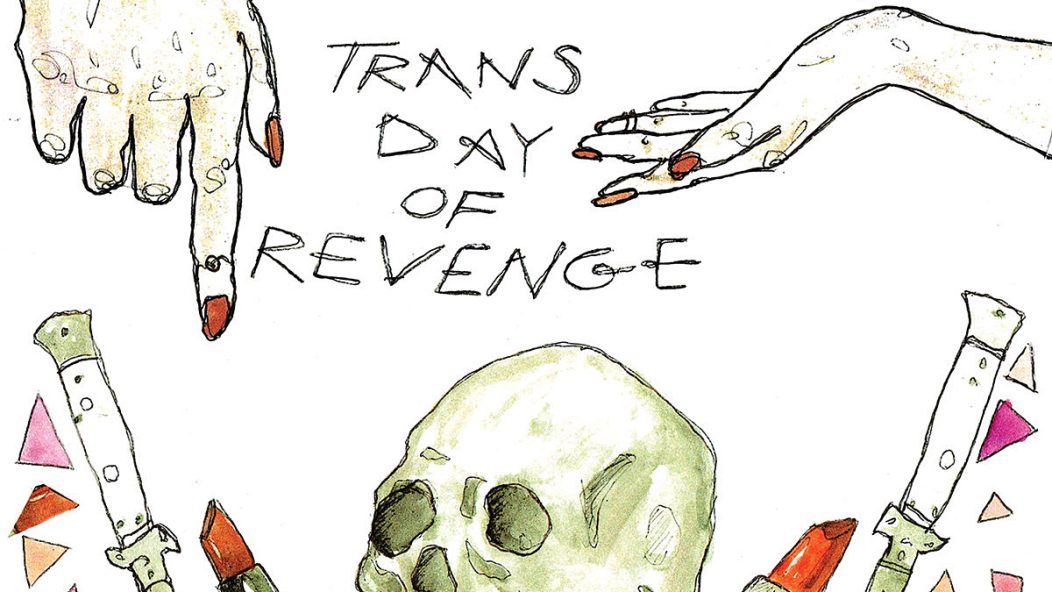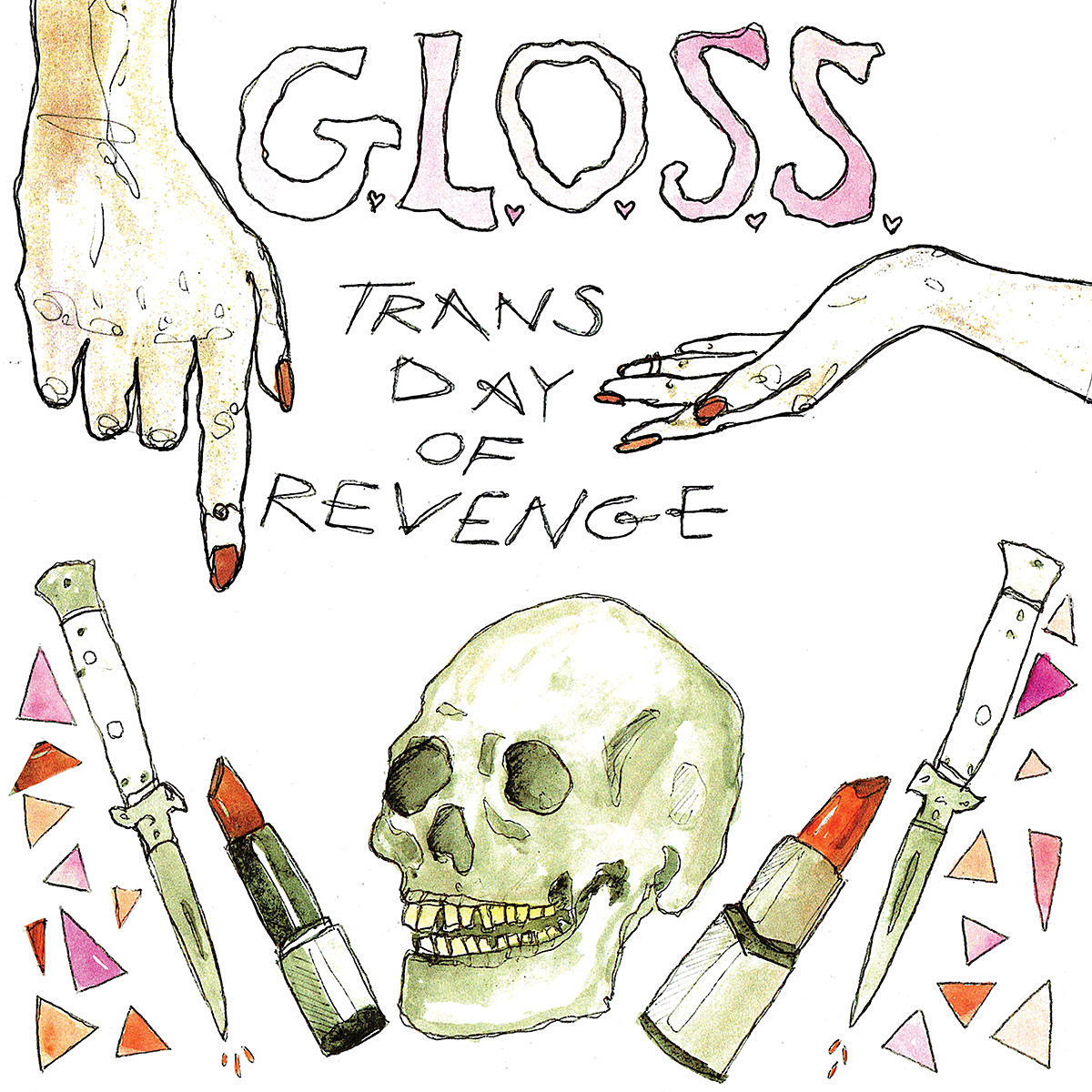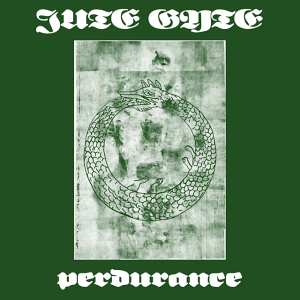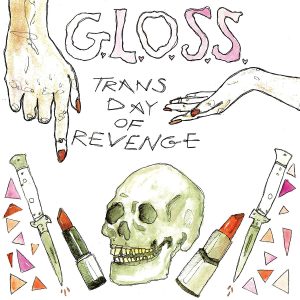
Top Albums of 2016, by Daniel Evans

…
Heavy music of a certain sort tends to capture negative emotions like anger, sadness, confusion and anxiety. In turn, it utilizes these emotions to get points across. As witnesses to the rise of fascism and nationalism in the West, we could stand to take cues from this process.
Growing up in an East Coast, liberal household, I was taught to associate leftist politics with emotionless rationality. But in 2016, calm empiricism in the face of hate has failed to prevent nationalism from taking hold in a number of Western countries. Liberalism, then, needs to seriously alter its image and methodology. Revolutionary politics that place emotions front and center are necessary if the left wants to play a radical, anti-establishment role again. Deploying our negative emotional responses — much like metal, which exemplifies the productive usage of negative emotion — is exactly what we need to do to combat the rise of nationalism and fascism.
I’m not going to pretend that all of the records I chose for my list are overtly political ones; in fact, only two or three of them are. But, given that just about all of them harness negativity and forge something productive with it — as leftism will have to in this new era of nationalism — they can still serve as a soundtrack for revolution.
…
Honorable Mentions:
20. Terra Tenebrosa – The Reverses (Debemur Morti Productions, France)
19.Elysia Crampton – Elysia Crampton Presents: Demon City (Break World Records, USA)
18. A$AP Ferg – Always Strive & Prosper (A$AP Worldwide, USA)
17. Oranssi Pazuzu – Värähtelijä (Svart Records, Finland)
16. Imperial Triumphant – Inceste (Redefining Darkness, USA)
15. Cult of Luna & Julie Christmas – Mariner (Indie Recordings, Norway)
14. Vermin Womb – Decline (Translation Loss/Throatruiner, USA)
13. Danny Brown – Atrocity Exhibition (Warp Records, USA)
12. Chthe’ilist – Le dernier crépuscule (Profound Lore/Dark Descent, Canada/USA)
11. Deathspell Omega – The Synarchy of Molten Bones (Norma Evangelium Diaboli, France)
…

It’s not easy to make art about cultures outside of one’s own — it often comes off as ham-fisted and thoughtless. But Kodama pays homage to Japanese folklore and animation lovingly, and without an appropriative sensibility. This is beautiful music; Neige’s reintegration of black metal drumming and vocals at points throughout the record actually serves to highlight that beauty, not just to appease fans who have mourned Alcest’s stylistic transformation.
Listen Here

Noisey’s premiere of Homeworlding’s opening track, “False Alarm,” relied on half-assed jokes about how the record sounds like it’s written by and for hipster beach bums, but they completely missed the mark. “False Alarm” may have a relaxing chord progression and some surf-y hammer-ons and pull-offs, but there’s a darkness below the song’s dreamy surface, and this stays true throughout the whole record. Just look at the lyrics of that same song’s chorus: “There are always gonna be / False alarms / But they are something / You can count on.” The incessant, nagging anxiety these lyrics apparently reference is anything but sunny. Fans of Duster and Low will find much to love on this lush, emotionally complex record.
Listen Here

A friend of mine recently posted a status on Facebook asking fellow metalheads for thoughts on what exactly makes extreme metal “extreme.” The conversation in the status’s comments showed that a frustration exists among some metal fans in relation to extreme metal bands’ failure to think outside of the box. Commenters pointed out that metal bands tend to make “extreme” compositional decisions within a limited number of musical modes, like time signature, dissonance, timbre, vocal performance, and structure. They want on to ask why metal bands don’t mess around with tempo, harmonic system, improvisation, electronics, instrumentation or any number of other often untouched musical elements. My answer? Jute Gyte. Perdurance is extreme in just about every sense; much of it is written with harmonic techniques like twelve-tone serialism and microtonality that metal bands hardly ever go near, and sections like the first riff of closing track “I Am in Athens and Pericles is Young” display a commitment to contrasting guitar-based riffs with serious electronic manipulation. And strangely enough, there are super catchy moments buried under all the chaos; see “At the Limit of Fertile Land,” which contains a surprising amount of mosh-ready, black/thrash influence.
Listen Here

Sometimes, experimental musicians try their darndest to place their art somehow outside of politics. But on the sonically varied yet consistently riveting Sirens, Nicolas Jaar boldly displays that his music does not exist in a vacuum, despite the fact that it’s generally classified as “experimental electronic music”. Jaar’s usage of multilingual lyrics feels especially relevant in today’s political climate.
Listen Here

Slowcore — pioneered by bands like Duster and Red House Painters in the ’90s — was as close as indie rock ever got to doom metal; despite its lack of harsh vocals or intensely distorted guitars, its characteristically snail-paced tempos made for some real heaviness. Unfortunately, the genre’s popularity mostly faded away alongside that of many other post-punk microgenres as the ’00s came on. Boston’s Horse Jumper of Love represent a return to this style without really sounding like any of its ’90s purveyors; their influences are clear, but they don’t come off as remotely derivative.
Listen Here

From the opening seconds of Slow Forever, it’s clear that you’re in for something that’s not only dark and heavy, but also influenced by distinctly American music forms. As He Who Crushes Teeth of Bone Awl once put it, “[Black metal involves] playing music that is rooted in the history of the country.” At its worst, this sort of ideology can lead to National Socialist bullshit; at its best, it can result in records that seem to possess a certain sense of location, as Slow Forever absolutely does.
Listen Here

I’m generally a proponent of listening to records as many times as possible before making value judgements about them; I find that many of my favorite albums don’t reach that status until I’ve given them several chances. Oathbreaker’s Rheia, on the other hand, is perhaps the only album on this list that I fell in love with upon a single listen. It’s shit-kicking, melancholic and refreshingly feminine all at once. And that outro in “Immortals”? I wish it would go on forever.
Listen Here

Trans Day of Revenge embodies just about everything I described in my introduction to this list. It’s angry, severe, and directed in a manner that so many responses to conservative violence fail to be. It’s too bad that this second release from the Olympia, WA hardcore band — which came out just a day after the Pulse mass shooting in Orlando — had to be their last; I think they could have taken up a musical leadership role in leftist action for years to come if they had chosen to do so. In lieu of that, we can all just blast “Give Violence A Chance” for the next four years.
Listen Here

Supergroups rarely meet — let alone exceed — the expectations set by their members’ individual projects. But Sumac is the exception that proves the rule: show me a Russian Circles song as rhythmically complex as “Rigid Man”, a Baptists song as heavy as “Will to Reach”, or an ISIS song as fluidly composed as “Clutch of Oblivion”. Sumac’s first record, 2015’s criminally underrated The Deal, displayed that the band was a force to be reckoned with, but What One Becomes takes nearly every aspect of the sound explored on that LP and expands upon it. Chaotic, dissonant improvisations are even more prominent than they were on The Deal — see the first 3 minutes of album opener “Image of Control.” But so are the locked-in, bludgeoning riffs that make Sumac so fun to headbang to — like the one around 7 minutes into that very same song.
Listen Here

Paradise Gallows makes me feel like a kid discovering heavy metal for the first time. It’s sublime, disturbing, and everything in between. Each mood it goes to along this spectrum is deeply affecting; I haven’t felt so overwhelmed while listening to a metal album since the first time I heard Panopticon in 7th or 8th grade. I’m not going to list all the subgenres Paradise Gallows touches upon; it’s all been said, and what matters is that it’s all gorgeous — from the just-barely off-beat snare hits at the end of “Primordial Wound” to the soaring guitar solo in the title track. If, for some reason, you haven’t yet, I implore you: check out this record.
Listen Here











